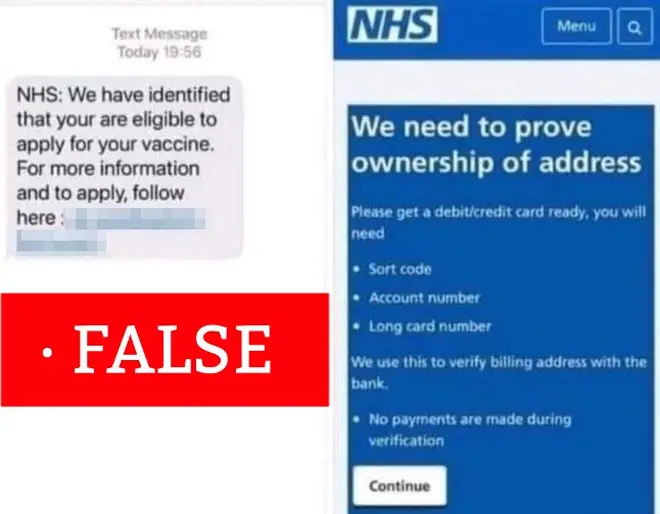
James O'Brien 10am - 1pm
9 January 2021, 12:34

Katherine Hart explains Covid scams for Dean Dunham
LBC's consumer rights expert reveals the ways you can spot a scam related to the coronavirus vaccine.
It is becoming very clear that the current climate, with the pandemic, lockdowns and now a vaccine has caused the perfect breeding ground for scams. New scams are therefore popping up every day and they are spreading faster than Covid-19.
This week I discovered that fraudsters have now latched on to the vaccine roll out and are using this as their latest theme to trick people into giving away their personal information and hard-earned cash.
Convinced that many people are going to fall victim to these new scams I highlighted them on the LBC Consumer Hour last night.
The response was staggering with listeners contacting me to say that either they or someone they know has fallen victim to one of these scams or they have received a text or email and wondered if it was genuine. Here are the key things you need to know about the scams and how to avoid falling victim to one of them:
1. You’re eligible for the vaccine
Fraudsters are sending text messages and emails telling recipients that they are eligible to ‘apply’ for the vaccine. An example is shown below:

Read More: Covid-19 crisis in numbers: LBC brings you the stats you need to know
The recipient is asked to click on a link and are then taken to what looks like the NHS website. Lots of LBC listeners have told me that the website looks genuine.
I interviewed Katherine Hart from Chartered Trading Standards Institute (CTSI) on the Consumer Hour about this. She too confirmed that many people are falling victim to this scam. She commented on why so many are being duped highlighting that as we are all waiting to be contacted about the vaccine, many believe these fraudulent messages are what they have been waiting for.
Those that click the link on text or email are asked to provide personal details (name, address, date of birth etc.) and their bank details, apparently to prove their identity. Of course, this is the scam, as armed with this information fraudsters can fleece your account and use your information to take out credit in your name.
Katherine Hart from CTSI advised LBC Consumer Hour listeners last night that the NHS will ask for:
· Your bank or any other financial details
· Any information beyond your name and address.
Many have also highlighted that the text message or email they received contained typographical errors. This is a common theme of a scam and should therefore always be a red flag.
2. Buy a vaccine
There was a story in the Daily Express yesterday about a 92 year old lady who was conned into paying £160 to a fraudster for a fake Covid vaccine.
This is clearly not an isolated event as LBC listeners informed me of falling victim to the same scam, Dylan from Leeds got in touch after the show, he said “my mum paid a fraudster £250 at her doorstep for what she thought was a vaccine for two.
She was told that an appointment card would be posted to her within five days. It never materialised”.
As Katherine Hart from CTSI confirmed on the show last night, the NHS are NOT CHARGING for the vaccine and will not be.
If you receive a text, email or visitor at your doorstep asking for money for a vaccine, IT’S A SCAM.
If you receive a communication about the vaccine, contact your GP and ask them to confirm that its genuine. Also, consider if you were really due to receive such a notification.
The NHS has provided guidance on the roll out and when different groups (depending on age and health) will receive it. More information can be found here: https://www.nhs.uk/conditions/coronavirus-covid-19/coronavirus-vaccination/coronavirus-vaccine/